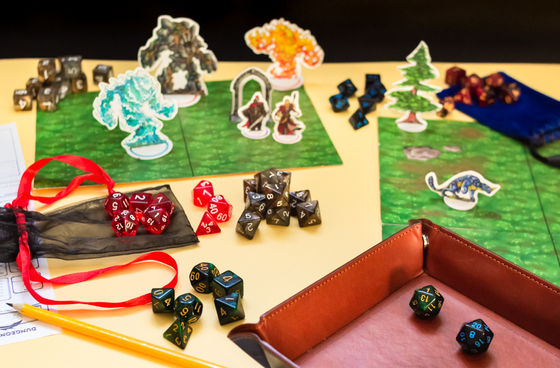Is it true that 'people with autism like board games'? Research reveals

Playing board games has been shown to improve children's
“We've All Come Together” A Board-Gaming Approach for Working with Autistic People
(PDF file) https://www.museumofplay.org/app/uploads/2023/05/AJP-16-1-Article-4-Board-Gaming-Autistic.pdf
Game Changer: Exploring the Role of Board Games in the Lives of Autistic People | Journal of Autism and Developmental Disorders
https://link.springer.com/article/10.1007/s10803-024-06408-0
Why are board games so popular among many people with autism? New research explains - University of Plymouth
https://www.plymouth.ac.uk/news/why-are-board-games-so-popular-among-many-people-with-autism-new-research-explains
Strange Link Between Board Games And Autism May Finally Be Explained : ScienceAlert
https://www.sciencealert.com/strange-link-between-board-games-and-autism-may-finally-be-explained
The board game industry is one of the fastest growing sectors in popularity, with some estimates predicting that the global board game market will grow from $4 billion in 2020 to $30 billion by 2026.
Board games are said to be particularly popular among people with autism. For example, the American tabletop role-playing game 'Dungeons & Dragons' features a character named 'Asteria' who is officially assigned to be autistic. However, there has been little academic research examining the relationship between this developmental disorder and board games.
Your perception check has revealed part of Asteria's stat block... but there is still more to uncover, keep at it to reveal what is hidden. pic.twitter.com/aPuVqaAZtr
— Dungeons & Dragons (@Wizards_DnD) October 30, 2023
To fill this gap, Liam Cross and his team at the University of Plymouth in the UK conducted a total of five studies in two peer-reviewed journals published in the American Journal of Play and the Journal of Autism and Developmental Disorders.
The first study surveyed 1,600 board game enthusiasts from around the world and found that 7% of them were diagnosed with autism. This is significantly higher than the 1% prevalence of autism in the general population. The widely used Autism Spectrum Quotient (AQ) also found that 30% of the people surveyed had 'significantly elevated levels of autistic traits.'
The second study involved in-depth interviews with 13 board game enthusiasts diagnosed with autism, asking them about their experiences playing board games and how they have affected their condition. This revealed how board games can be both relaxing and stimulating for people with autism, provide an immersive experience, and act as a substitute for social communication.
In the third study, researchers visited autism community groups and played a variety of commercially available board games, including Werewolf and Dixit , with 28 autistic people who were not board game enthusiasts. After the games, participants were interviewed and found that board games offered an alternative way to build social relationships and that they presented both challenges and opportunities for growth.

The fourth and fifth studies involved adolescents with autism and adults with intellectual disabilities in Special Educational Needs (SEN) schools in the UK. Both groups participated in weekly board game sessions over two years and found that the game-playing intervention improved cooperation, social skills, independence and self-esteem in both groups.
Based on these results, the research team wrote in their paper, 'Board games may be an area that combines both challenges and strengths for people with autism.'
The researchers plan to further investigate how board games' 'structured, predictable, and clearly defined framework that strengthens social bonds' may improve well-being in people with autism.

'In this study, when we say 'board game hobby,' we don't mean that you play Monopoly with your family occasionally, but that you play board games frequently at board game cafes,' said Cross, lead author of the paper published in the American Journal of Play. 'We're pleased to show that board games are a popular hobby and important to many people.'
'We were surprised to find a lack of evidence supporting the effectiveness of using board games as an intervention for people with autism, but this study has motivated us to pursue this approach in different ways,' said Gray Atherton, lead author of the other paper. 'Every person with autism is different, so we want to be able to tailor our interventions as needed for those who may benefit from board games.'
Related Posts:







